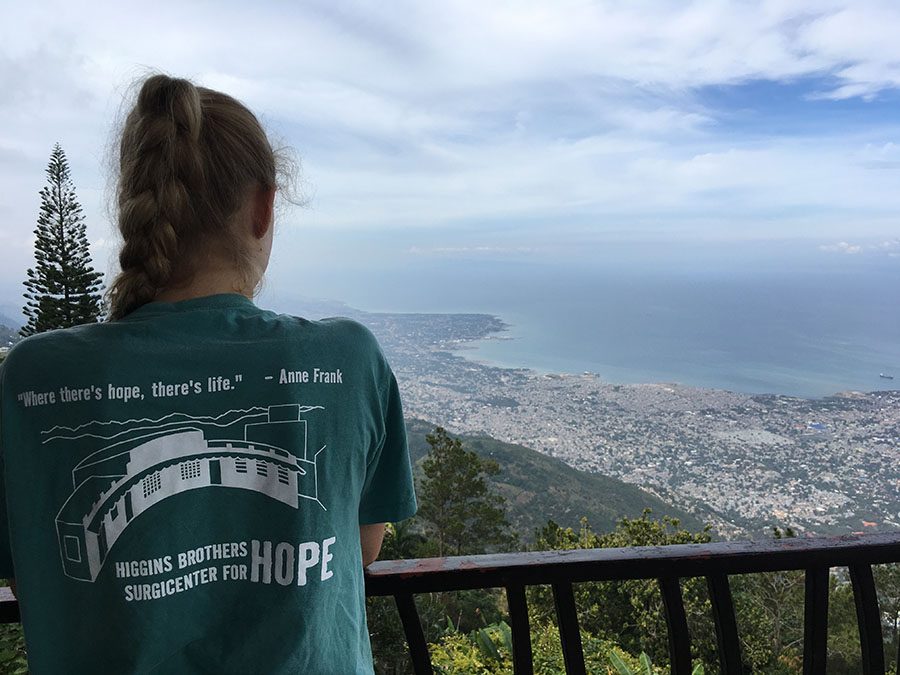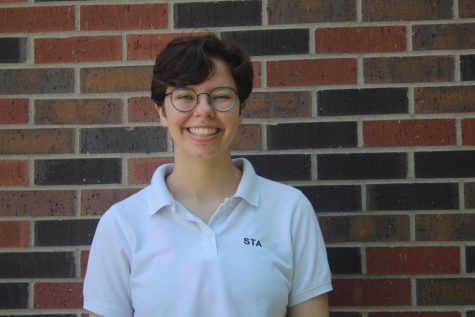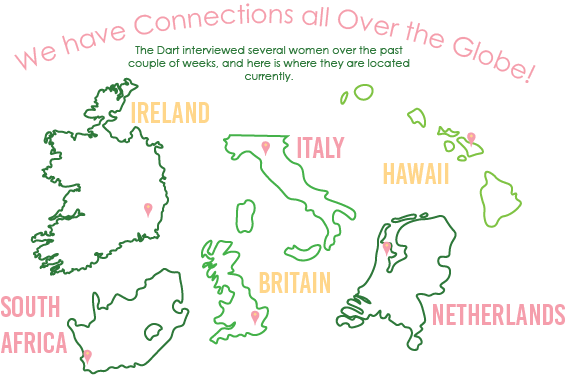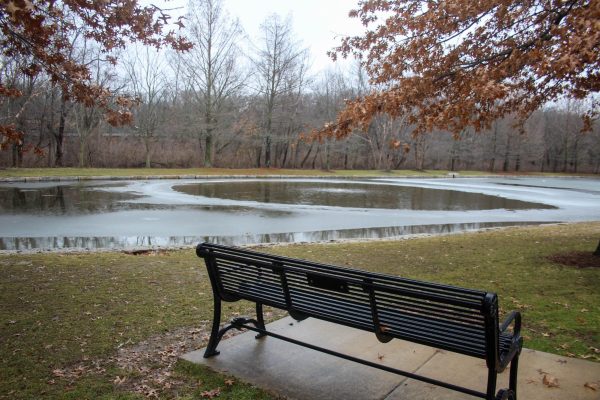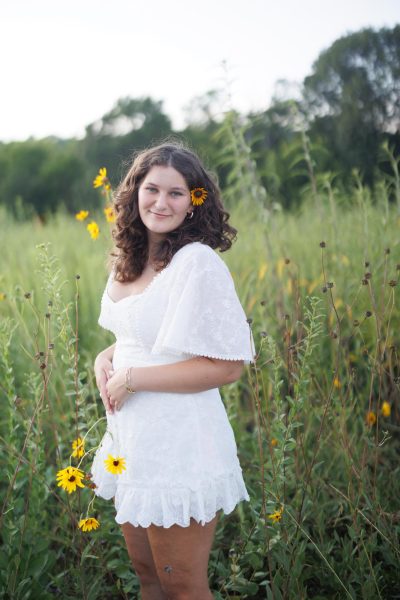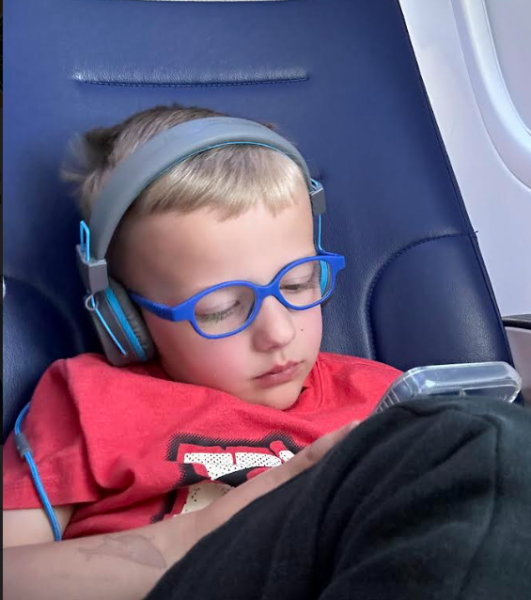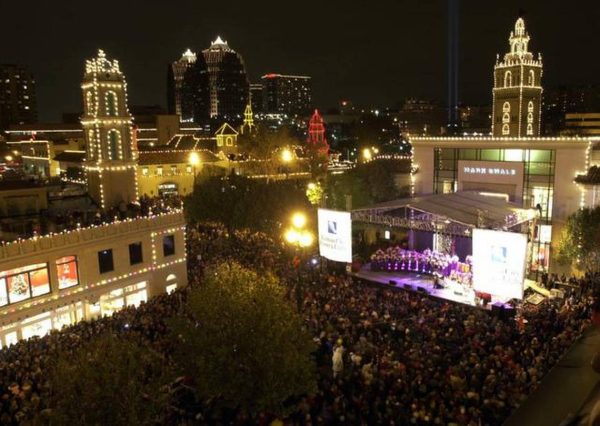Star Spotlight: Layne Stowers
Senior Layne Stowers spent Jan 12-19 in Fonds-Parisien, Haiti on a medical mission trip.
Senior Layne Stowers overlooks of the capital; Port-au-Prince, Haiti Jan. 19. Stowers was in Haiti for a medical mission trip through Phillips Presbyterian Church. photo courtesy of Layne Stowers
March 3, 2018
How did you end up going on this mission trip?
It is though my church, Philips Presbyterian, and part of it is through Doctor Ted Higgins. He started this surgicenter down there and so he’s been going four times a year for tons of years it seems like.The trip is not normally for students, but rather medical professionals. I knew the director of international mission at our church, so she put in a good word for me.
Who did you stay with while you were down there?
The Haitian Christian Mission, which is what Doctor Higgins and his group goes through. They started after the huge earthquake in 2012.
What did your typical day look like in Fonds-Parisien?
I spent a lot of my time in post-op, so right after patients came out of surgery and off anesthesia. We would be in charge of taking vitals, doing anything they need, whether they need to go to the bathroom, or they need water, anything. But then, randomly at times, a surgeon would be like “Ok, come follow me,” and you would just listen. One of my first times in the O.R., one of the surgeons hands me a scalpel and tells me to cut. I’m like, “What are you talking about? No, I’m not going to do that.” But he said, “Yeah, cut from here to here.” It was really hands on. We did one or two operations that I was in each day, starting the third day. I did help a baby be delivered, which was really cool. Words can’t really describe what it’s like to see one of the world’s many miracles. I couldn’t be more grateful to have been a part of bringing a new child into this world.
Was there ever a time where you felt totally out of your comfort zone?
No, I really didn’t. Throughout the trip I met these people and we became friends, and I was comfortable just being there alone and partially because it’s a new experience and you’re never going to be bored. In the medical aspect of it, it’s kinda weird, but when you’re in the O.R., it’s kinda calming. Some people get worried, and they’re like “Oh my gosh, the smell of the O.R. is going to kill me,” but it just excited me.
Did this trip help you decide what you want to do as a career?
Initially I was thinking that maybe I just want to be more of a pediatric nurse. We didn’t have any children there, it was mainly adults, so I didn’t really get the pediatric aspect of it. But the more time I spent with the adult patients, the more time I thought that maybe I did want to be in surgery or in the operating room.
What was your favorite experience while you were there?
Definitely my times in the OR, because it’s just amazing to have world class surgeons teach you. They don’t have HIPPA in Haiti, which are all the regulations that say you can’t share any information and you can’t touch a patient in surgery. All the rules are so strict. In Haiti, they just need help. So those rules aren’t a thing. So being able to help all those people even though I don’t have training yet. It’s kind of a goal of where I want to end up.
What did you do about the language barrier while you were there?
In a sense, the barrier was easier to overcome with the translators. I knew how to say so many things in Spanish, but I couldn’t because they couldn’t communicate. That barrier of saying “it’s going to be ok, don’t worry, this feeling is normal” or even talking to the patient’s family was difficult.
Could you see yourself doing something like this as a career, like Doctors Without Borders?
I’ve definitely thought about working in underdeveloped countries. I don’t know if that’s something I would do long-term as a career, but Doctor Higgins goes down for a week four times a year, and even just that is enough to help them. He’ll do all the major procedures and he’ll teach the Haitian surgeons, so in that period of three months when he’s not down there, the Haitian surgeons can work, check up on patients, do surgeries, and allows him to perform major surgeries that are booked months in advance. It allows for more impact the way he does it, because it’s not like an American coming in, fixing things and leaving them to suffer.



